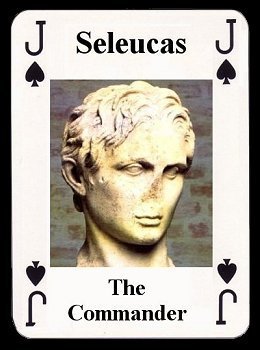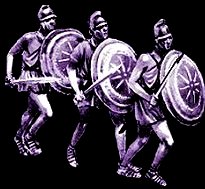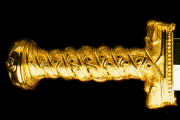
Although junior to the commanders of the infantry and cavalry,
the commander of the Shield Bearers now had direct control of discipline
throughout the entire Macedonian and allied army. Placing so much power
in the hands of one man may have been a mistake that Alexander eventually
paid for with his life. In Babylon in June 323 BC, the one person best placed to
seize control in a military coup was Seleucus – which is exactly what he may
have decided to do. Fearing that they had gained too much influence,
Alexander had a habit of replacing senior officers between campaigns.
The conquest of the Persian
Empire was over and Alexander
was already planning an invasion of Arabia: a re-shuffle in
the high command was almost inevitable. In June 323 BC, if Seleucus had
his eyes on Alexander’s crown, it may have been a case of now or never.
Left: The Shield Bearers were the elite special forces
of Alexander’s army.

By the late summer of 330 BC all that remained of the Persian Empire was its eastern province of Bactria – roughly what is now Afghanistan. Its governor, Bessus, refused to surrender and Alexander was forced into a protracted campaign in unfamiliar desert and mountainous terrain. It was during the Bactrian campaign that Seleucus proved himself to be one of Alexander’s most able officers.
When the war was finally over in 327 BC, he was promoted to commander of the Shield Bearers, an elite unit of heavy infantry whose purpose it was to protect the king. They were in effect the royal guard, such as the praetorians were to the later Roman emperors. However, the death-toll had been high and Alexander was forced to draft in foreign reinforcements. The Shield Bearers were doubled in size and were now to be used as a military police force to maintain order within the new, multi-national army.
(Photograph: Mark Cockle)










